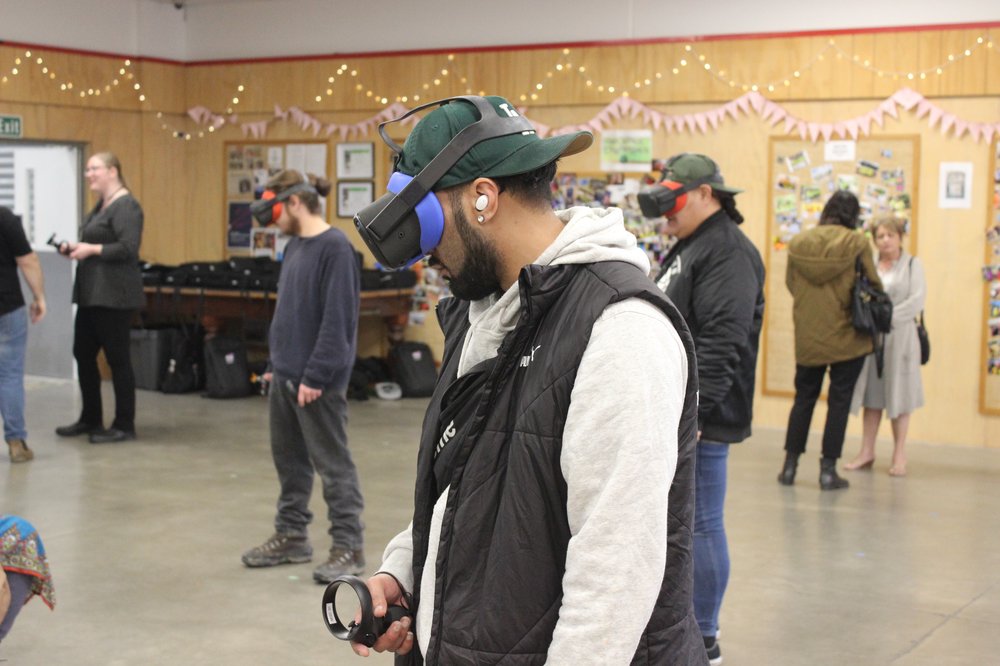Site Safe Launch Virtual Reality Training Course for New Zealand’s Construction Industry
02 Sep 2024
Site Safe New Zealand is excited to announce the launch of its first virtual reality (VR) health and safety training courses to New Zealand’s construction industry.
From 15 August 2023, learners in Auckland will be able to book VR formats of the Foundation Passport Building Construction and Civil courses.
These VR courses have been designed to provide health and safety training through a virtual onsite experience, that accurately simulates hazards and risks present in a real construction environment.
Developed with industry, and in collaboration with the Ministry of Social Development and SkillsVR, the Foundation Passport Building Construction and Civil courses set the standard for health and safety training and knowledge in New Zealand’s construction industry.
Foundation Passport health and safety training is suitable for people who are existing and new to the construction industry, particularly those who are unfamiliar with construction in New Zealand.
Learners who complete the one-and-a-half-hour VR course receive a digital Site Safety Card (valid for two years). The digital card includes a green ‘Foundation’ indicator, showing they have completed the foundational training that allows them to work safely on a New Zealand construction site.
Virtual reality (VR) training is an innovative, future focused learning format that allows for real life scenarios to be digitally simulated for training purposes and eliminates the risk of making mistakes.
Learners will gain the tools and knowledge to keep themselves and others safe in areas such as working at heights, working in trenches, delivering materials, and laying foundations through an interactive, technology driven virtual experience.
VR training is also more time efficient, cost effective, and accommodating to people with different learning styles. VR delivers consistent training content and results in high learning outcomes.
“As the industry’s leading safety organisation, we are committed to working alongside industry to make sure our training is the gold standard in giving our kaimahi the knowledge they need to stay safe on site. It’s fantastic that we are able to add VR to our classroom and online delivery options so that our people have the best possible learning experience.” says Brett Murray, Site Safe’s Chief Executive.
VR health and safety training allows for people to be fully immersed in and engaged with their learning. Using VR headsets and controllers, learners complete interactive tasks, such as hazard and risk identification, PPE selection, and identifying how to keep themselves and others healthy and safe in a construction environment.
Job seeker Jacob Hedley was the first person to complete the VR Foundation Passport training course, and in one-and-a-half hours, he gained his digital Site Safety Card and important skills that would help him in his search for a job.
“I was actually blown away, I told my missus, I told my brother-in law, father-in-law, and a friend over in Australia,” said Jacob.
As a key sector currently facing a skilled labour shortage, the development of VR health and safety training is an innovative way of getting people ready for work in the construction industry.
Site Safe Chief Executive Brett Murray says many parts of the construction industry are “crying out for more workers, especially ones who are well trained and committed to a career in construction.”
“By utilising technology such as VR, Site Safe continues to lead in providing innovative and effective ways of delivering workplace health and safety training,” says Brett. “It is important that we are doing all we can to ensure that construction is seen as a safe and attractive sector to work in. Training plays a big part in building the competence and confidence of our workforce to produce good work outcomes.”
Site Safe's Virtual Reality Courses.
Other recent news